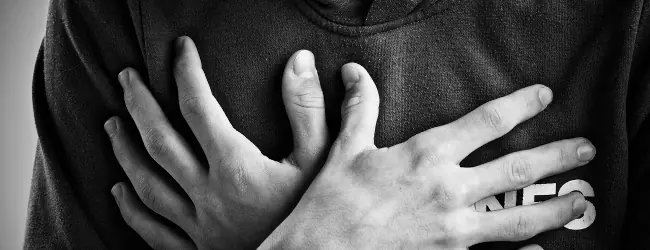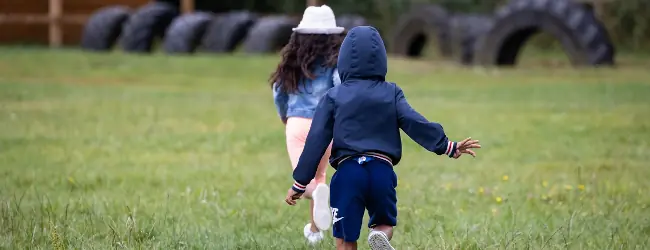In an earlier post (this article), I mentioned the mental system of an inferiority complex. And I want to add a little explanation from another perspective. So today, let’s talk about why an inferiority complex is not a mental problem from the perspective of the whole picture.
Why do we have an inferiority complex?
We sometimes suffer from an inferiority complex. An inferiority complex is one of the mental works that makes us feel inferior or worthless compared to others.
If we have it, we tend to be unable to forgive ourselves for what we cannot do. Sometimes, it will be trying too hard. Sometimes, it will be a bad aspect of perfectionism. And it exhausts us.

But if we understand why we have it, we can accept it because we can control and use it efficiently. In other words, we can resolve our inferiority complexes.
So today, I will explain the whole picture of why we have inferiority complexes. That knowledge might tell us that an inferiority complex is not a mental problem and how we can resolve it.
The healthy system of the inferiority complex
Usually, we use the mental system of the inferiority complex healthily. An example is finding good companions to grow our talents efficiently and joyfully.
Let’s say we are in a park and watching children play. Children are around 6–8 years old. Children around that age often suddenly start competing with each other in something.
For example, a boy suddenly says, “Let’s run over there and race!” He starts running immediately. And other children follow and run. If you have a child or children of relatives, you might have experienced that.

This is an example of how the inferiority complex is working well. If these children have similar abilities, it is sure that others will say, “Once more! You started too fast! It’s not fair!” because they want to get back at him.
In addition, the boy had an unfair start intentionally because he wanted to compete and have fun with them. If he made an unfair start and children had similar abilities, he knew they would say, “Once more!” for sure.
That allows for finding companions
That allows them to find good companions. Children of these ages need to create a healthy body. In such a situation, companions with similar abilities help. They run and compete with joy until they get tired. That makes their bodies and talents grow healthier.
Sometimes, they could add a handicap to get closer to their ability. That is one of the reasons why it is not intended to look down on others.

If the race doesn’t work well, they try another race, such as climbing a tree, swimming, fishing, other sports, or playing other games. So when a child plays with an adult, the child often changes his play in the short term. This is because the adults don’t say, “Once more!” The adults often don’t know that the children want to compete.
That is the healthy work of an inferiority complex.
The bad effect of the inferiority complex
On the other hand, there could be cases where an inferiority complex doesn’t work healthily.
Competition is one of the ways to find companions. But it also means that societies change their shapes. At such times, there are sometimes some who cannot keep up with it. In other words, society leaves behind some children.

Usually, some empathic people help them. I call them the “traditional empaths” in recent articles. They can help others emotionally and directly.
In childhood, children with sadness sometimes ask some tender, older boys or girls to listen to their sadness. These older boys or girls, sometimes adults, are the traditional empaths. They listen to our emotions quietly and tenderly.
And after we share our sad emotions with them, we feel relieved. In other words, we can let go of the emotion.
The absence of empathic people creates suffering
But sometimes, we didn’t have such an empathic person. In that case, it became a mental complex because we couldn’t let go of the emotion. We are afraid of feeling the sadness again.

So, we try to avoid it. Sometimes, it will be trying too hard. Sometimes, it will be a bad aspect of perfectionism. And that exhausts us, as I mentioned at the beginning of this article.
Perhaps this is the whole picture of an inferiority complex.
An inferiority complex is not a mental problem
If we look only at the personal part, it seems like a mental problem. But the whole picture shows us the core problem.
That tells us an inferiority complex is a problem of a competitive society. To be precise, it is a problem of the connection between our society and us. It is not a mental problem of individuals.
Weak people usually leave a competitive society if it doesn’t care for them. That is a natural phenomenon. It is not a mental problem.

As long as that society is appreciated, it can grow because strong people come in, even if the weak members leave. But once it loses its competitiveness or attractiveness, that society will decline. That is also natural. It is a social problem that doesn’t care for the weak people. And it is not the fault of the weak people.
That is why we can say an inferiority complex is not a mental problem.
We are allowed to migrate to another society
So, we are allowed to migrate to another society. We don’t need to feel guilty to do it.
That understanding will free us from the competition that stresses us. And that will solve our inferiority complex.
Conclusion
So, that is why we humans need the system of an inferiority complex. And that also makes inferiority complex.
If we look only at the personal part, it seems like a mental problem. But the whole picture shows us that the core problem is the connection between our society and us.
That knowledge might free us from inferiority complexes and give us new worlds.
Thank you for reading this article. I hope to see you at the next one.


